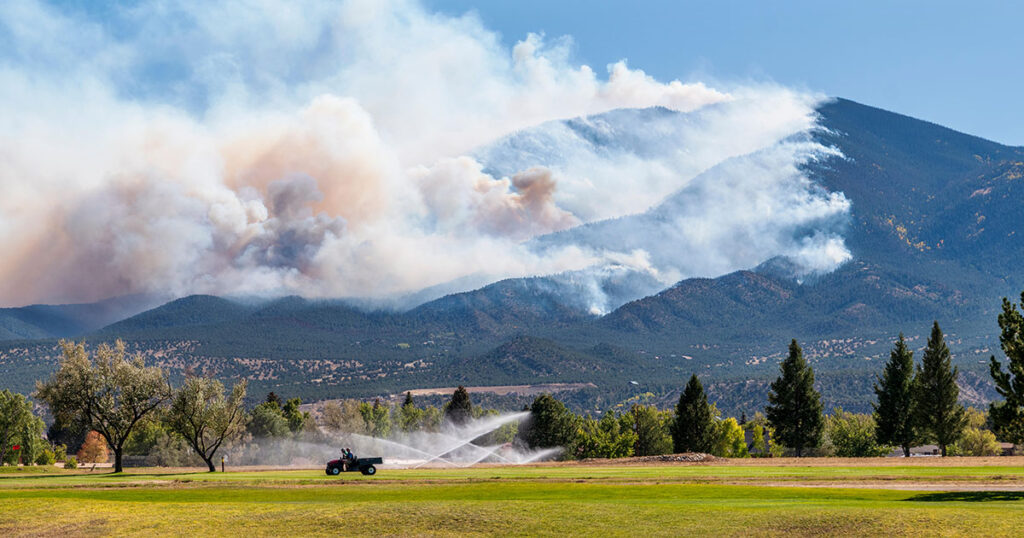
“Fire and humanity have a bond so close, it can seem like symbiosis,” writes Stephen J. Pyne, an emeritus professor at Arizona State University and the author of 35 books, most of them about fire. “Humans made it to the top of the food chain because we learned to use fire to cook, yes, but also to craft wood, stone, metal, sand, and living landscapes.” Once we began the widespread burning of fossil fuels, however, our fire footprint became so expansive that Pyne believes “the Anthropocene could as readily be named the Pyrocene.” We asked him to pose five questions about the future of our relationship to fire.
1. Our firepower has increased faster than our ability to control fire. Killer fires, ecologically damaging fires—these are becoming more frequent, destructive, and extensive in fire-prone places, and have begun to affect previously immune locations. Half of all the world’s megafires—wildfires that consume 100,000 acres or more—are caused by humans and are therefore theoretically preventable; most of the worst of these fires in recent years were started by power lines. How do we protect houses, municipal watersheds, and critical habitats? There are many techniques—for communities, hardening structures against ember storms is the most critical. But also high on the list is substituting good fires—controlled burning—for bad, feral ones. How will we stop bad fires in the future?
2. In most of the developed world, the right kind of burning does not take place. In the absence of good fires, conditions become ripe for bad fires. The canonical examples are ponderosa and longleaf pine savannas, which flourish under a regimen of frequent surface fires and which accumulate, in the absence of fire, thick understories—scrub that can carry damaging, unstoppable flames into the canopy. Or consider tallgrass prairies, the periodic burning of which is necessary for young shoots of native vegetation to flourish. When the prairie is overrun with woody plants that change its biological character, beneficial benign fires become more difficult. How will we promote more good fire?
3. Making changes on the local level is necessary, but so too is a reconsideration of the way lithic landscapes are burned on a global scope. Our quest for fire is no longer about sources (finding fuels to burn) but about sinks (finding reservoirs to put all the effluent). Its impact on climate means that fire helps melt Arctic sea ice, acidify oceans, and catalyze extinctions. How can we end our binge-burning of fossil fuels?
4. We have longstanding narrative traditions that depict fire as disaster and firefighting as a battlefield. We don’t have—or, in industrial countries, have forgotten—compelling stories about fire as a fundamental feature of Earth. Our water planet is also a fire planet. Without narratives, the science and technology of fire won’t matter. We’ll have data, but not meaning; tools, but no purposes. What new stories should we tell to describe fire’s place on Earth and its role in ecological stewardship?
5. Long ago, we made an alliance with fire that made us powerful. We turned fire into a tool and domesticated it as we did maize and sheep. But we need to remember that although we can’t survive without it, fire can thrive without us. Our relationship is skewed, and that imbalance is rippling across Earth like a rogue wave. What began as a mutual assistance pact is looking more and more like a Faustian bargain. How should we reconceive our relationship to fire?

